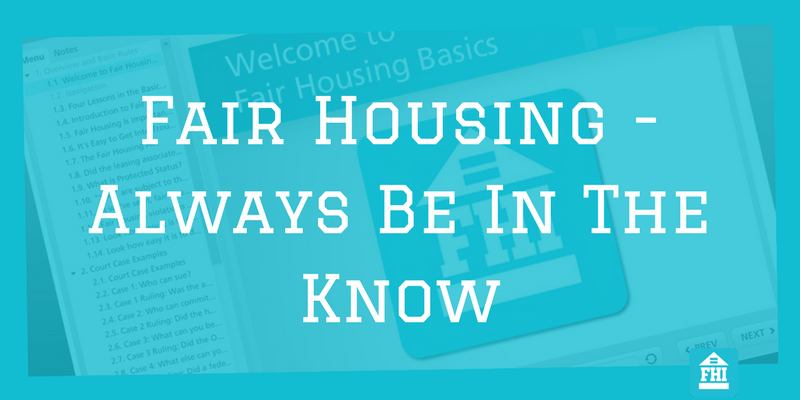It is critical for landlords to comply with Fair Housing when screening tenants for many reasons– legal, ethical, and business.
However, it is not difficult to avoid problem tenants before the lease is signed and still be fully compliant with Fair Housing regulations. Landlords can check this post out for a go overview of Fair Housing regulations 10 Things Landlords Should Know About Fair Housing
The first thing to remember is to treat every applicant the same.
We have had a large number of new landlords register with TenantMagic and I been getting calls with questions about co-applicants. Some landlords tell me that they give married couples a break on their application fees or do not require the wife to complete an application and background screening.
This is a bad practice and can result in the owner running afoul of Fair Housing regulations.
Any co-applicant must be treated the same regardless if they are married to the primary applicant.
The TenantMagic application instructs all applicants 18 and over to complete the application and authorize the background screening.
This not only helps with Fair Housing compliance but makes good business sense. It important to know if any of your tenants have a felony conviction or a history of collections from creditors.
TenantMagic charges each applicant an application fee. Many landlords I have spoken to feel that a fee for each applicant can pose an obstacle for applying.
My response to the landlord is they can offer to take the fees off of the 1st months’s rent if accepted.
The benefit of charging an application fee upfront, is to minimize the number of applicants that would not qualify (based on Fair Housing allowed criteria).
TenantMagic’s goal is to reduce the time landlords and agents spend with unqualified applicants while providing them with comprehensive information to make an informed decision.
This post is for guidance purposes only and is not intended as legal advice. If you have any questions regarding fair housing laws, please consult an attorney or the proper regulatory agency.
